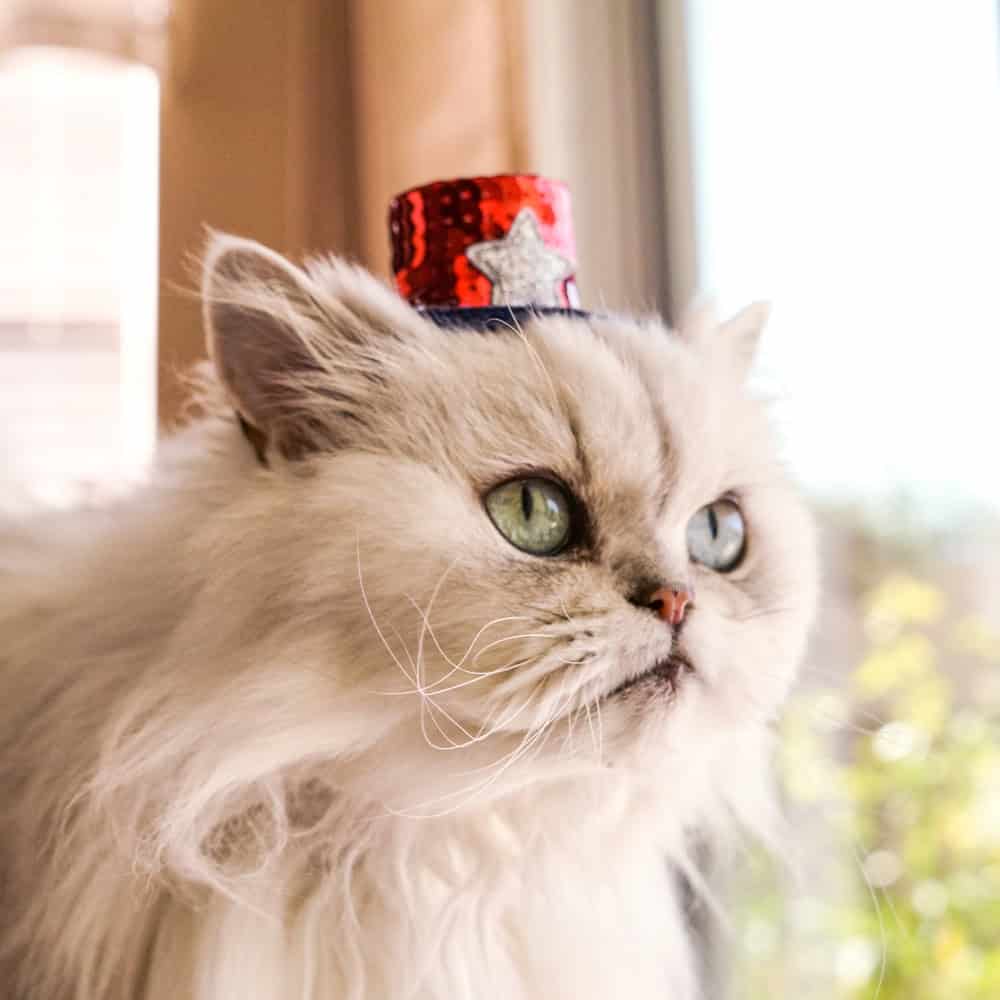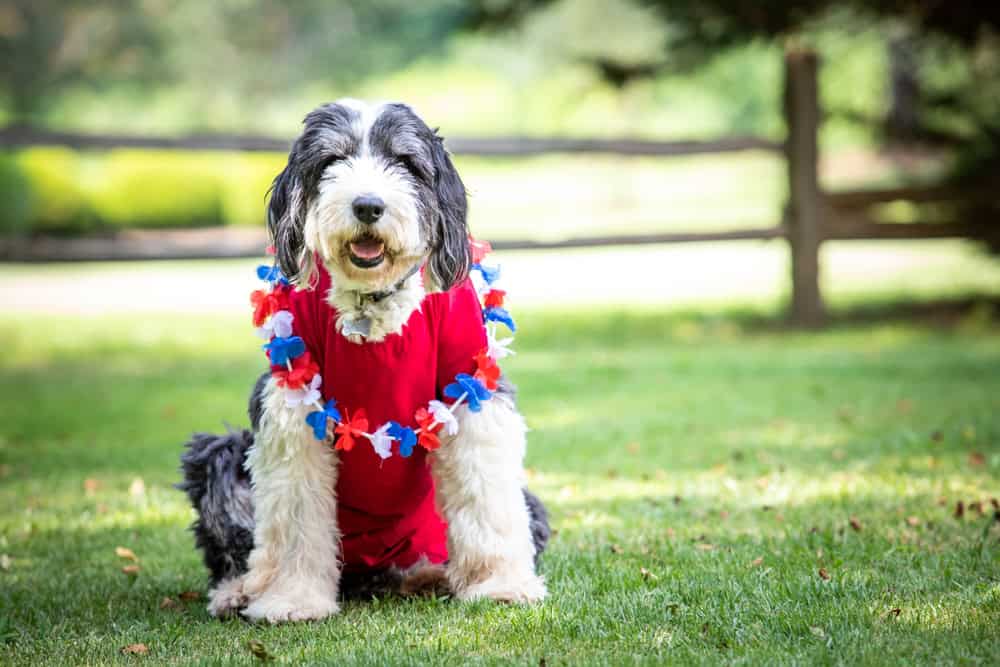The Fourth of July often means backyard parties, family and friends, fireworks, and celebrating our nation’s freedom. However, this is also the date when more pets go missing than during any other day of the year. In addition, Independence Day is one of the busiest days for veterinary emergency hospitals. Health hazards abound—from fireworks to food. To prevent your pet from experiencing a mishap this holiday, read our Advanced Veterinary Care of Pasco team’s guide to keeping your pet safe on July Fourth.
Fourth of July preparation for pets
During the weeks leading up to your Independence Day celebration, plan how you can keep your pet safe during the holiday. To protect and prepare your pet, follow these tips:
- Ensure your pet’s identification (ID) tags are up to date — Before the holiday, you should outfit your pet in a secure-fitting collar or harness and ensure they have up-to-date ID tags with your current contact information.
- Ensure your contact information is current in the pet microchip registry — Check that your pet’s microchip is registered with your correct contact information. Visit the American Animal Hospital Association’s (AAHA’s) Universal Pet Microchip Lookup Tool.
- Have your pet microchipped — If your pet is not microchipped, schedule an appointment to have one placed. This easy and pain-free procedure increases the chances of your pet being returned to you should they become lost.
- Check fences and gates — Ensure your yard’s fences and gates are secure so your pet can’t escape if startled.
- Help your pet conquer their noise aversion — If your pet has experienced severe noise aversion before, consult our veterinarian. We can prescribe your pet anti-anxiety medication before the fireworks boom. In addition, we can refer you to a veterinary behaviorist who could help your pet conquer their fear.
Keeping pets safe on July Fourth

Although you may be tempted to include your pet in your July Fourth celebration, the safest place for them is inside your home. To keep your pet safe on Independence Day, follow these tips:
- Leave your pet at home — If you plan to attend a fireworks show or a holiday gathering, leave your pet at home. Your pet’s risk of overheating, becoming stressed, ingesting toxins, or running away outweighs any fun you might enjoy. If you must include your pet, make your memories safely at home, preferably indoors.
- Create a haven for your pet — If you’re hosting a barbecue, keep your pet inside during the festivities and create a quiet space in which they can relax. A safe space could be their crate, a small bedroom, laundry room, or bathroom. Fill your pet’s quiet space with soft blankets and their favorite toys. Ensure they have food, water, and a litter box or potty pad. Close shades or drapes to block out bright lights, and play soft music or white noise to mask fireworks and loud chatter. Pheromones can also be extremely useful for calming your pet.
- Avoid the backyard grill — Giving your pet treats from the grill or picnic can cause gastrointestinal (GI) upset or pancreatitis. People foods, such as alcohol, onions, grapes, and chocolate are toxic, even lethal, for pets. If your pet swallows a bone, it may splinter or lodge in their digestive tract, requiring surgical removal. Keep in mind that as tempting to your pet as it seems, a corncob will block your dog’s digestive tract. Avoiding those puppy dog eyes is difficult, but sudden changes to your pet’s diet can result in a trip to the veterinary emergency hospital. Keep trash cans tightly closed, advise guests not to feed your pet, and clear countertops and tables so pets can’t access leftovers.
- Ensure guests know the rules — When guests visit, ensure you tell them that table scraps can make your pet sick, but give each guest a handful of treats they can safely give your pet. Put signs on all doors and gates, reminding guests to ensure they close them securely so your pet can’t escape.
- Monitor sun and heat exposure — Summer sun and heat exposure can cause your pet heat exhaustion or heatstroke, requiring emergency veterinary care. Heat stress signs include excessive panting, restlessness, dark red or blue gums, and staggering. During warm weather, monitor your pet’s time in the sun, limit exercise, and ensure they retreat to the shade often. Always provide fresh, cool water, and never leave a pet unattended in a parked car. If you suspect your pet is suffering from heat exhaustion, take them to the pet emergency hospital immediately.
If you would like additional summer holiday pet safety tips or need medication to help your pet cope with firework noise, contact our Advanced Veterinary Care of Pasco team.

